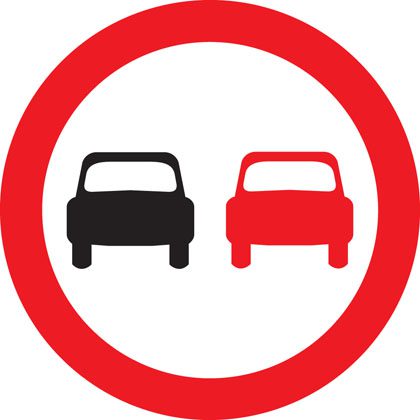
Learning to drive is an exciting journey that many people look forward to. However, it’s not uncommon to feel nervous or even overwhelmed when you think about getting behind the wheel for the first time.
This experience is shared by many, indicating that feeling anxious about driving is more normal than you might think.
Your concerns about driving could range from driving at night to feeling apprehensive about navigating the motorway. It’s important to recognize that these feelings of nervousness are common among novice drivers.
1. Driving at Night
The Challenge of Night-Time Driving
Driving at night presents a unique set of challenges, especially for learner drivers. Most driving lessons occur during daylight, leaving many new drivers with little to no experience of navigating the roads after dark. It’s perfectly natural to feel apprehensive about undertaking tasks that are unfamiliar.
Overcoming Fear
The fear of driving in the dark can stem from various concerns, from the fear of the unknown to concerns about reduced visibility. This anxiety is a common experience among drivers, regardless of their level of experience.

Building Confidence Through Practice
The key to overcoming the fear of night-time driving is gradual exposure. Start by ensuring you’re comfortable driving during the day. Then, progressively move on to driving in the early evening, and eventually, when it’s completely dark outside.
Seeking Additional Instruction
Consider asking your driving instructor for lessons in the evening. Practice is essential in building confidence, and with enough experience, driving at night will become just another aspect of driving you can approach with confidence.
2. Driving on the Motorway
The Initial Hesitation
Many individuals avoid motorway driving until after they have passed their driving test. The thought of navigating the motorway, especially the complexity of routes like the M25, can be daunting for new drivers. This fear, often rooted in the unfamiliarity of motorway conditions, doesn’t need to be an obstacle.
Embracing Motorway Driving
Despite the apprehension, motorway driving, with its distinct rules and higher speed limits, is a skill that drivers can quickly adapt to with practice.
Motorways are considered to be among the safest roads to drive on, primarily because the flow of traffic is more predictable and overtaking is generally safer. The key aspect to focus on is maintaining the correct lane discipline.
Learning Opportunities
For those worried about their first time driving on the motorway alone, there’s good news. Since 2018, learner drivers have been allowed to take driving lessons on the motorway.
This opportunity means your instructor might include motorway driving in your lessons once you’ve grasped the basic driving skills.
While motorway driving is not a part of the driving test, gaining experience in it is crucial for becoming a safe driver for life.
3. Driving in Poor Weather
The Reality of British Weather
The UK is well-known for its unpredictable and often inclement weather. Drivers regularly face conditions such as rain, ice, and occasionally snow. Avoiding driving in poor weather isn’t a practical solution, as it would significantly limit mobility.
Challenges and Solutions
Driving in adverse weather conditions can significantly affect your driving experience, with issues like poor visibility and increased stopping distances being common. These challenges can understandably increase a driver’s anxiety, especially when navigating the often daunting British weather.
Rain is the most frequent challenge you’ll encounter. In such conditions, it’s essential to double your stopping distance and maintain a generous gap between your vehicle and others.
To prevent aquaplaning, it’s crucial to drive through puddles carefully, avoiding the temptation to create a splash.
Should you find yourself aquaplaning, remain calm and gently ease off the accelerator until you regain control of your vehicle.
Learning to Adapt
It’s likely that you’ll experience some poor weather conditions during your driving lessons. This provides an excellent opportunity for your driving instructor to teach you how to adjust your driving to match the weather.
Remembering their advice, paying close attention to the road, and practicing will build your confidence to drive safely in any weather.
4. Overtaking
The Desire to Overtake
At some point, every driver encounters situations where the vehicle in front is moving slower than desired, prompting the need to overtake. For those new to driving, the prospect of overtaking can be daunting.
Learning the Basics
Overtaking is a skill that becomes more familiar with practice. During your driving lessons, you’ll learn not just how to overtake safely but also how to respond when others overtake you.
The first step is to ensure overtaking is permitted. A circular sign featuring two cars side by side, one in red, indicates that overtaking is not allowed.

Image source: Open Government Licence v3.0
On such roads, you may only overtake cyclists or horse-riders, and only if it’s safe.
The Process of Overtaking
When overtaking is allowed and it’s safe to proceed, the process involves several key steps: checking your mirrors, ensuring there is sufficient time and space to overtake, and signalling right to inform other road users of your intention.
As you continue to drive and gain experience, the timing and judgement involved in overtaking will become more intuitive.
Guidance and Practice
Your driving instructor will play a crucial role in helping you understand the nuances of overtaking, including when it’s appropriate, how to handle being overtaken, and the specific rules around undertaking.
With time and practice, overtaking will become a natural part of your driving skills.
5. Parking
The Final Hurdle for New Drivers
Reaching your destination might fill you with a sense of achievement, especially as a new driver working to overcome driving anxiety. However, one last challenge often looms large for novices: parking.
Understanding Parking Complexities
While it might appear straightforward, parking involves various scenarios and manoeuvres that can challenge even seasoned drivers. The task encompasses more than just finding an empty space and switching off the engine.
Overcoming the Fear of Being Judged
A significant source of anxiety for many new drivers is the concern that others are watching and judging their parking skills.
However, it’s worth considering how often you observe others parking in busy places like supermarket car parks.
Most people are too preoccupied with their own tasks to notice someone parking. This realisation can be comforting for those who fear the scrutiny of others.
Facing Your Fears
The best approach to conquer parking anxiety is to face it directly. Don’t hesitate to discuss any concerns or difficulties you’re experiencing with your driving instructor.
Open communication allows for tailored lessons to address your specific needs. With practice and guidance, you’ll soon find yourself confidently manoeuvring into parking spaces with ease.


